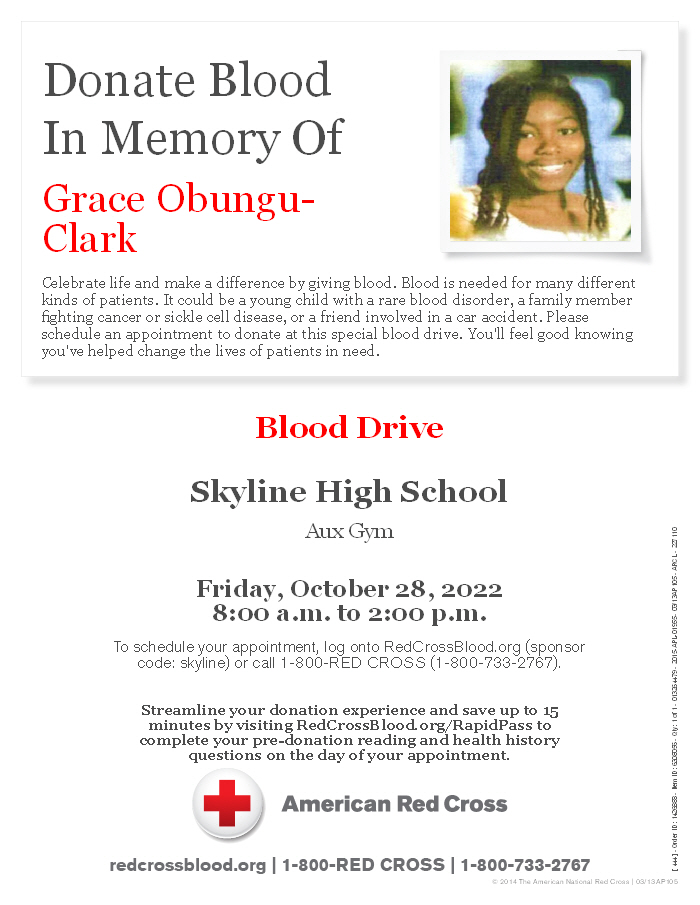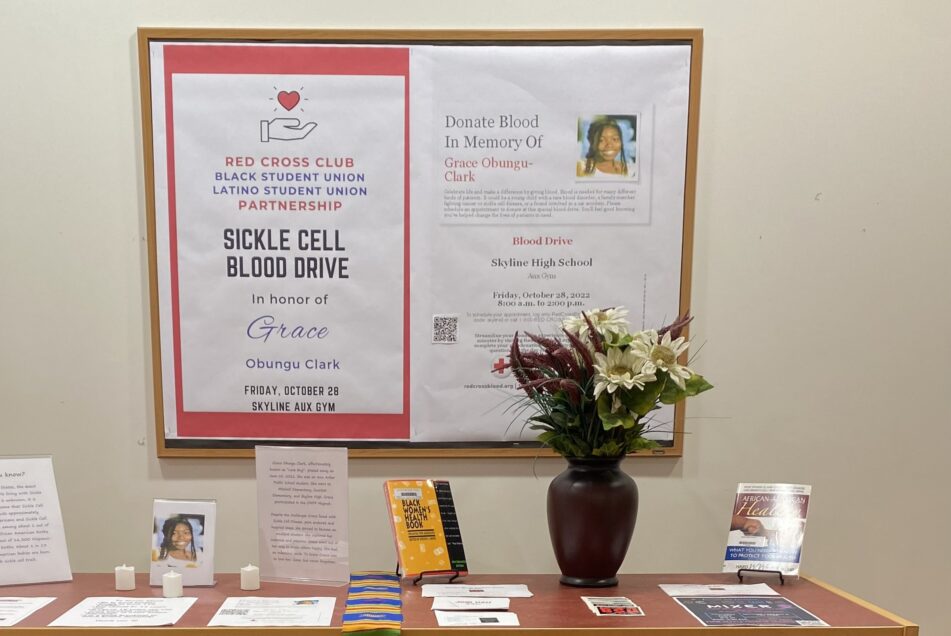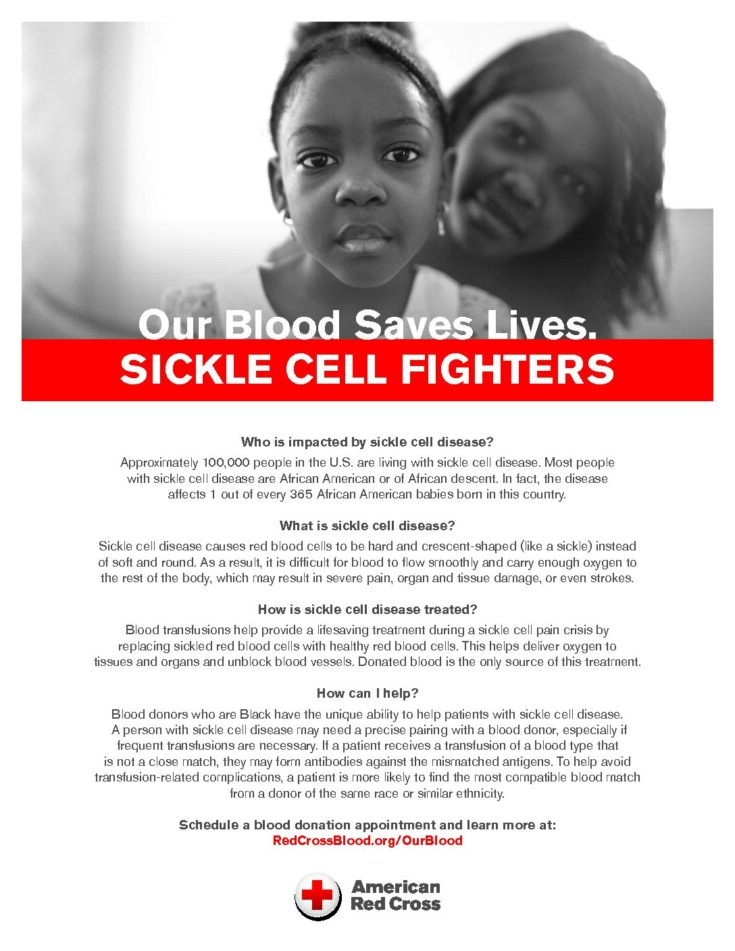Skyline student Grace Obungo-Clark passed away from Sickle Cell Disease in 2021
By Jo Mathis/AAPS District News

Grace Obungo-Clark was a generous, bright girl who was loved by many friends and teachers at Carpenter Elementary and Scarlett Middle School before she moved on to Skyline High School.
Skyline social studies teacher Cate McGraw met Gracie over Zoom at the beginning of her sophomore year when she had just joined the CMPP Magnet Program.
“Even online, Gracie radiated kindness, curiosity, creativity, and determination,” says McGraw.
Sadly, Gracie passed away at the age of 16 in June of 2021 from complications of Sickle Cell Disease, the most common genetic blood disease in the United States. Most people who have Sickle Cell Disease are African American or of African descent.
In Gracies’s memory, the Skyline Red Cross Club, Black Student Union, and Latino Student Union will hold a blood drive from 8 a.m. to 2 p.m. on Friday, Oct. 28 in the auxiliary gym at Skyline High School. The drive is limited to staff and students 16 and older, and those who are 16 need their parent’s permission.
McGraw recalls speaking with Gracie when Gracie was at home as well as in the hospital, and she was “blown away by her positivity.”
“It was abundantly clear that her illness did not define her,” says McGraw. “We spoke about current events, about advocating for social change, and about her goal to attend college. She was always looking ahead, even when she was feeling unwell. I so wish that we had been able to meet in person, and I will never forget our conversations.”
Scarlett Middle School teacher Sean Slay first met Gracie as a preschooler when he was working as an administrator at the Washtenaw County Head Start.
“Some years later, I was fortunate enough to have Grace as my fifth grade student at Carpenter Elementary,” he recalls. “Gracie was an extraordinary person. As Gracie’s teacher, I was always impressed with her selflessness and her positive energy. She always found a way to make others around her feel better. Her smile was priceless. It was impossible to look at her without sharing a smile in return.”
Slay says he knows that a blood drive in her honor would make Gracie smile.
“Grace would be happy to know that her loving and selfless character would continue to live on through all of us who would volunteer to be blood donors for adults and children alike,” he says. “Although Gracie is no longer physically with us, her love and spirit will live on through kind and selfless acts that honor her life, and the love that she shared with everyone who was fortunate to know her.”
“Love is not a feeling. Love is an action. Show your love for Gracie and others by donating blood at Skyline!”
— Sean Slay, Gracie’s fifth grade teacher

Learn about Sickle Cell Disease
Source: The American Red Cross
Sickle cell disease causes red blood cells to be hard and crescent-shaped (like a sickle) instead of soft and round. As a result, it is difficult for blood to flow smoothly and carry adequate oxygen to the rest of the body, which may result in severe pain, stroke, and organ damage. Blood transfusion helps relieve pain during a crisis and prevent other complications by increasing the number of healthy red blood cells in the body, helping to deliver oxygen throughout the body and unblock blood vessels.
Some patients who experience more severe symptoms from the disease may require monthly blood transfusions to replace their sickled red blood cells with healthy red blood cells. Donated blood is the only source for this treatment. Blood donors who are Black have the unique ability to help patients with sickle cell disease who rely on blood transfusions.
People of any ethnic background can suffer from debilitating conditions related to blood disorders. Sickle cell disease is one of those conditions. Sickle cell disease is the most common genetic blood disease in the U.S. An estimated 100,000 people in the U.S. are living with sickle cell disease. Most patients with sickle cell disease are African American or of African descent. In fact, the disease affects 1 out of every 365 African American babies born in this country.


Be the first to comment